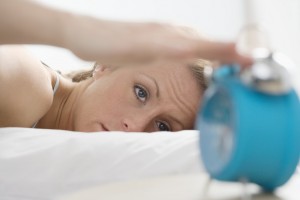Are You Suffering From A Sleep Disorder? Top Tips For Insomnia
 The NHS estimates that there are over 10 million sleeping pills prescribed each year for individuals who are suffering from a sleep disorder. But is this just a way of side stepping the real issue?
The NHS estimates that there are over 10 million sleeping pills prescribed each year for individuals who are suffering from a sleep disorder. But is this just a way of side stepping the real issue?
Psychologist Justin Duwe explores.
Why do sleep disorders matter?
There are over 80 documented sleep disorders, with insomnia (poor quality or lack of sleep) being the most prevalent. Insomnia means you lack the sufficient amount of uninterrupted sleep necessary to wake feeling refreshed and well rested.
Insomnia and sleep disorders matter because if they are left to go on and are untreated they can increase your chance of developing serious health problems. This includes mental health issues such as depression and anxiety It also includes physical issues like heart disease and increased risk of mortality.
Why common tricks to help yourself sleep don’t work
Many who suffer from insomnia opt for the Rip Van Winkle technique to get to sleep. They skip the warm glass of milk and instead drink a night cap in an effort to sleep better. But that late night cap that you may be drinking to help you go to sleep may actually be making it more difficult for you to fall asleep.

photo by Cottonbro for Pexels
Like caffeine which is found in tea, coffee, chocolate, and even some medication coatings, alcohol can also stimulate and help to keep the body in an “alert” mode.
And no, the answer isn’t always sleeping pills. It can be more helpful to address the underlying physical and psychological issues that are causing the sleep problem.
How to combat a sleep disorder
The following 10 tips may help you achieve the good night’s rest you desire and need.
1. Keep a sleep journal.
Write down what you are eating and drinking, what time you go to bed, when you wake up, and how long you are actually sleeping. Try this for a week. The information you write down may provide important clues to why you are not sleeping as well as you would like to.
2. Improve your sleep environment.
Your bedroom may be affecting the quality of, and your ability to, sleep. Good ‘sleep hygiene’ dictates that your room should not be too hot or too cold. The pillow you sleep with should provide proper support, and the bed clothes should also be comfortable against the skin. Light and noise can also attribute to the quality of sleep you experience. If your room is too bright, try putting up thicker curtains, and if it is too noisy try sleeping with ear plugs.
3. Move the clock.
People with insomnia often get fixated on the clock and watching the time pass by. Moving the alarm clock out of sight may help to lessen your fixation and alleviate your level of stress.
4. Relax.
If becoming relaxed enough to fall asleep is difficult, simple, natural relaxation techniques may possibly help you. Try breathing exercises or progressive relaxation.
5. Think positive.
The connection between the mind and body is strong, and negative thoughts such as “I should be asleep right now”, or “Why can’t I just sleep like a normal person?”, may actually be inhibiting your sleep.
Pay attention to the things you tell yourself when you are trying to sleep. Are they positive or negative? If they are negative, replacing these thoughts with something more positive may help you to fall asleep with greater ease.
6. Only sleep and have sex in bed.
Limiting the use of the bed will help to create positive associations that you may not currently have. If you are working in bed or surfing the Internet before you go to sleep you may be creating negative associations which may be fueling your insomnia.
7. The 15-minute rule.
If you find yourself still awake after 15 minutes of trying to get to sleep in bed, get out of it! Read a book, take a short walk, or find an activity that will help you to relax until you feel tired. Once you feel tired, return to bed and try to go to sleep. Try repeating this until you are able to go to sleep.
8. Establish a sleep routine.
If you lack a routine bedtime, establishing a regular sleep and wake time, and stick to this even during the weekends. Try avoiding catching up on sleep and taking naps for more than 30 minutes, as this can throw off the resetting of your body’s rhythm.
9,. See your GP.
If you have tried the above techniques and you are still experiencing difficulty sleeping, the cause may be physical and not psychological. Tell your GP about your struggle with sleep as they may opt to run tests to see if your insomnia is a symptom, and can help you decide if medication is right for you.
10. Speak with a therapist.
Research has shown that cognitive behavioural therapy (CBT) can be helpful in treating insomnia. Therapists trained in this form of psychotherapy can help treat insomnia by helping you identify possibly thoughts that you may be unaware of that are inhibiting your sleep. They can also teach you techniques to help fall asleep with greater ease.
Sick of sleeplessness ruining everything? We offer a highly regarded, expert team of therapists offering CBT therapy for insomnia and other forms of sleep disorder. Or use our sister site to book UK-wide online sleep therapists today.
Still have a question about dealing with a sleep disorder? Post below.
Justin Duwe is a psychologist, sexologist, and author living and working in London.




